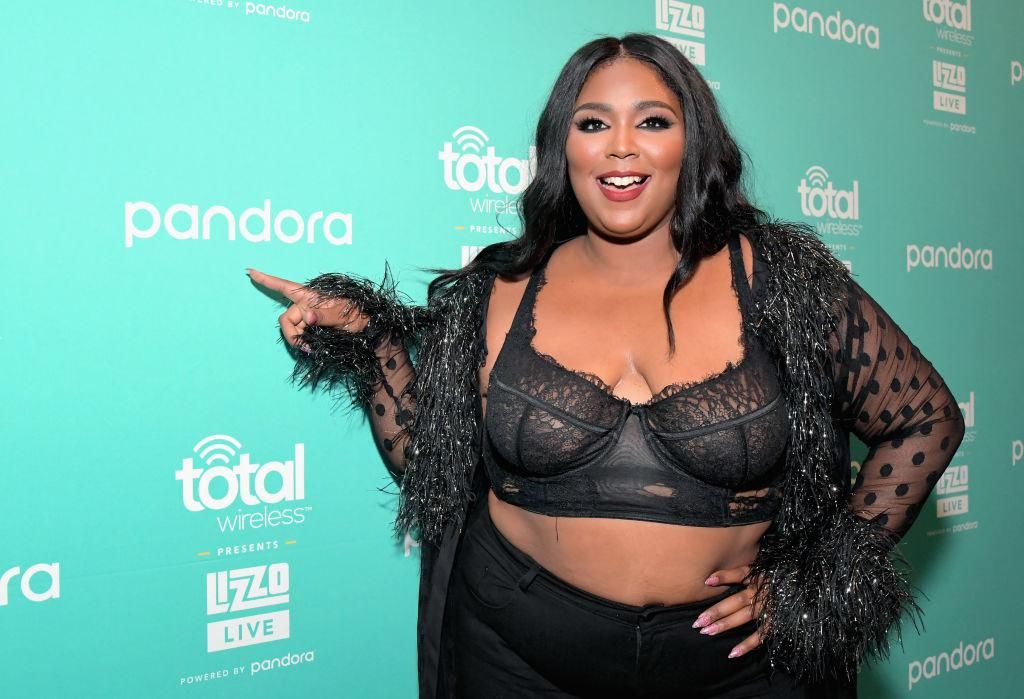Melissa Viviane Jefferson grew up in a pentecostal household that forbade wearing pants and preached that secular music was the devil. That same little girl who would quietly rebel against her parents' religious beliefs in the privacy of her bedroom is a now a heavy metal, p*ssy popping, gospel singer named Lizzo who acts as the voice for a sex-positive generation of women that believe success is rooted in self-love.
Lizzo learned this concept after years of having her gifts praised privately, but ignored in the eye of the mainstream. The artist told Teen Vogue that this cycle of rejection started early in life, and later manifested as insecurity that followed her throughout her music career. She said:
"When I was in high school, I was a big girl with a cute face. So dudes liked me secretly, but they didn't like me publicly. I never had a boyfriend because they didn't want to claim me. So now in this industry, I'm a big girl with a cute face and some cute music and I'm still being liked secretly and not claimed publicly."
These insecurities led the young artist into a pit of self-destruction where she eventually found herself homeless and at the lowest weight she had ever been her adult life. At 21, she discovered self-love during what she calls the worst year of her life. After her father died, she had a bout with depression and was ready to give up.
"I was addicted to the gym, I didn't eat, and I was sleeping in a dusty car, all for music. I thought my life was over."
Like Lizzo, I learned a long time ago to appreciate my lows, because it's only when I'm in the depths of my self-doubt and depression that I truly gain a rare perspective. It is only at my lowest point that I can gauge the strength it will take to conquer my surroundings and climb out of the sunken place that exists in my reality. Lizzo gained this same perspective, but says that we shouldn't necessarily accept the narrative that we have to hit a bottom to rebuild. She told Teen Vogue:
"Everyone shouldn't have to hit rock bottom to love themselves. That's just the society we're all unfortunately born in — the one where you have to hit your worst and hate yourself in order to love yourself? Those laws only exist because self-hate is so prevalent. Body positivity only exists because body negativity is the norm."
Her music has been revelatory to audiences worldwide, made famous by her uncommon ability to mesh heavy metal and gospel and find soul in each ballad. One of her videos from 2017 shows her masturbating in a church, which she says has a direct correlation to her religious upbringing and her message of self-love. Many call the work that Lizzo does revolutionary, but she just calls it necessary.
"It's bizarre to me that what I'm saying and doing is revolutionary, because it should be so innate and first-nature. Not even second-nature."
Lizzo says that part of her advocacy for self-love includes rewriting the narrative for other women. The theology prevalent among our peers is that black women's bodies are ideal targets for objectification and abuse, but the 30-year-old artist says, "Nah".
"We should love ourselves first. We should look at our bodies as vehicles for success, and not a signifier of who you are, how good your pussy is, if dudes like you or not, or if you can fit certain clothes...that's not what your body's for."
"That's a part of my journey: I want to love myself, and to truly be in love with yourself is freedom."
She says that she recognized long ago that her journey in self-love was completely selfless. After spending her entire life developing a positive self image, she hopes that sharing her journey will help other women discover the same treasure within themselves.
"I've always stood up for the underdog and the underrepresented because I can't escape from that myself. I can't wake up one day and not be black. I can't wake up one day and not be a woman. I can't wake up one day and not be fat. I always had those three things against me in this world, and because I fight for myself, I have to fight for everyone else."
To read the full interview, click here.
Featured image by Charley Gallay/Getty Images for Pandora
